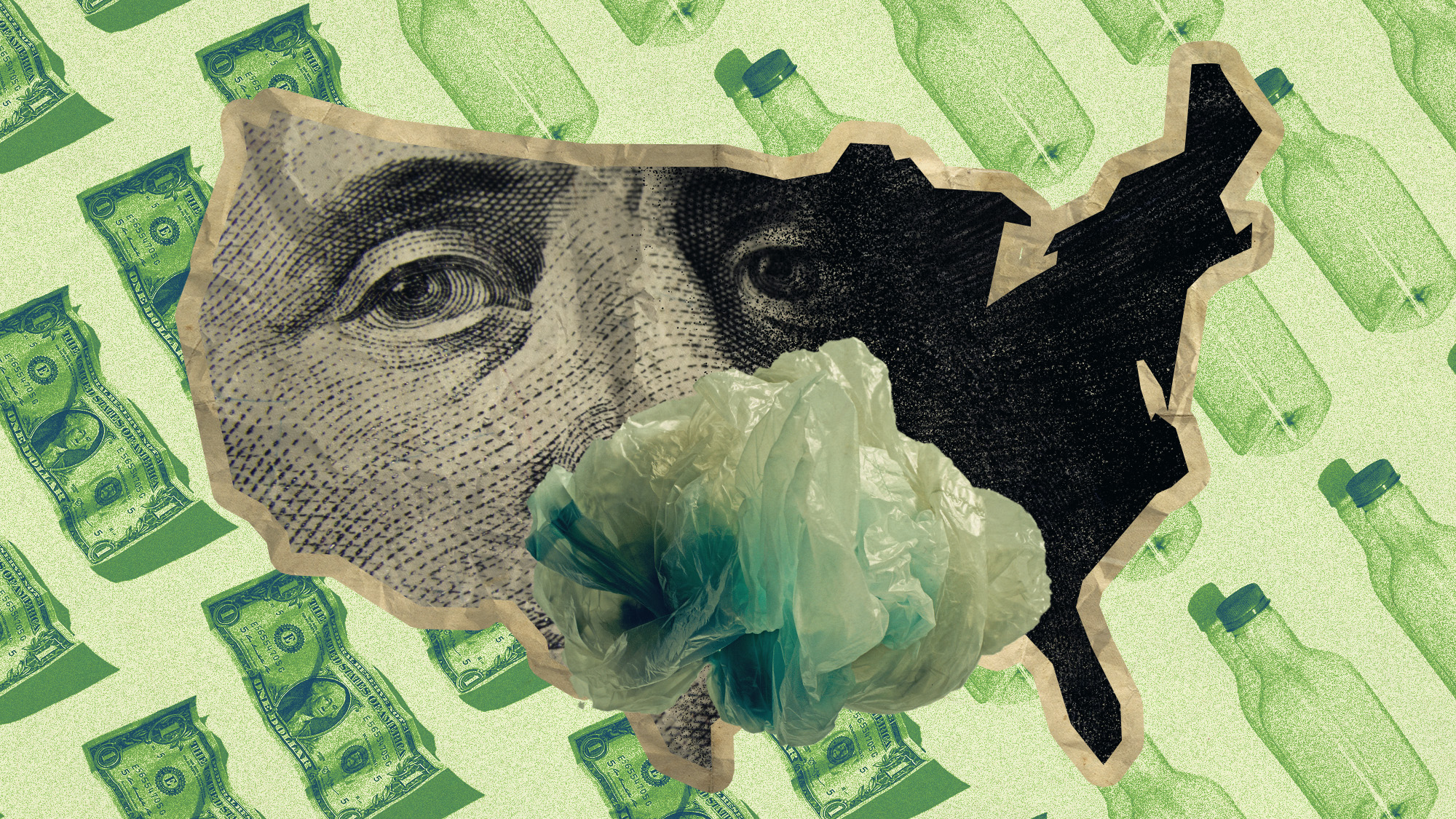How billions in taxpayer dollars fuel pollution from plastics
At least 50 plastic plants have been built or expanded in the United States over the last decade


A free daily email with the biggest news stories of the day – and the best features from TheWeek.com
You are now subscribed
Your newsletter sign-up was successful
Plastics have long been in the crosshairs of environmental groups for the pollutants given off by their production. This is especially true in highly industrialized, generally poorly regulated regions of the United States, such as the Gulf Coast. However, a new report shows that despite the well-publicized pollution caused by plastic plants, taxpayers are continuing to fund these operations on a widespread scale.
The report, published in March by a climate nonprofit called the Environmental Integrity Project, concluded that the "rapidly growing plastics industry in the U.S. receives billions of dollars in government subsidies," but "frequently violate their air pollution control permits, often releasing hazardous chemicals that risk the health and safety of nearby communities." A large portion of these subsidies are siphoned directly from taxpayers, the report said.
As with many of the environmental hazards in the United States, most of the people "living within three miles of the factories that manufacture the main ingredients in plastic products are people of color," the report said. It also attempted to examine whether "public funds used to subsidize this industry are addressing these inequities or making the problem worse by depriving local communities of tax revenues while harming their quality of life." If the plastics industry is continually causing environmental harm, why are taxpayers still footing the bill?
The Week
Escape your echo chamber. Get the facts behind the news, plus analysis from multiple perspectives.

Sign up for The Week's Free Newsletters
From our morning news briefing to a weekly Good News Newsletter, get the best of The Week delivered directly to your inbox.
From our morning news briefing to a weekly Good News Newsletter, get the best of The Week delivered directly to your inbox.
What did the report find?
At least 50 plastic manufacturing plants have been built or expanded in the United States during the last decade. Of those 50, at least 32 of them — or two-thirds — "have received tax breaks or subsidies from state and local governments worth a total of nearly $9 billion," the report said. These subsidies are nearly twice as much as the "combined budgets of two state agencies tasked with regulating the bulk of plastics plants in the U.S.," said the report. This statistic refers to the environmental regulation agencies of Texas and Louisiana, two states where the majority of plastic plants are located.
In Texas alone, the plants "have drawn a total of $1.65 billion in property tax breaks through the state's Chapter 313 program for energy and manufacturing companies," according to Inside Climate News. While Texas has the most plastic production plants, the "most generous tax breaks come from neighboring Louisiana," the outlet said, where, despite Louisiana being one of the poorest states, "three projects alone drew $6.5 billion in local discounts since 2013."
One notable example occurred in 2015, when an international plastics corporation, Indorama, opened a plant in the city of Westlake, Louisiana. The company "received a $1.5 million grant from Louisiana," the report said, but more notably, also received an "exemption from paying any local taxes for schools, roads, fire departments or anything else — a subsidy worth at least $73 million over a decade."
And while Indorama and other plants have promised to clean up their act, the massive tax breaks come as 84% of them "violated their air pollution control permits over the last three years," the report said. In 2021 alone, the plants "reported releasing an estimated 63 million tons of greenhouse gases."
A free daily email with the biggest news stories of the day – and the best features from TheWeek.com
"Taxpayers are paying out of their pockets for plants that manufacture pollution that harms them," said Terrie Baumgardner, a local outreach coordinator for the nonprofit Clean Air Council, said to NPR."There's something terribly wrong with that picture."
What is next for the plastics industry?
Not everyone is against the tax breaks for these corporations. A Pittsburgh-area Shell plant was "one of the best things that happened to Steamfitters Local 449," Ken Broadbent, the business manager for the Pittsburgh steamfitters union, said to NPR. Union workers were able to make six figures constructing the plant, Broadbent said, and also assisted in the construction of a $19 million training facility. But the report clearly insinuates that the benefits of plastic production are outweighed by the problems.
Those against the industry wonder "whether state and federal regulators will deny permits or if state and local entities will reject or revoke subsidies, which are some of the recommendations in the report," Axios said.
The report's recommendations to stop the subsidies "can't come soon enough," Brandy Deason, the climate justice coordinator for Air Alliance Houston, said to Axios. The government needs to "close loopholes for polluters and stop rewarding those that harm air quality and health," Deason said.
Justin Klawans has worked as a staff writer at The Week since 2022. He began his career covering local news before joining Newsweek as a breaking news reporter, where he wrote about politics, national and global affairs, business, crime, sports, film, television and other news. Justin has also freelanced for outlets including Collider and United Press International.
